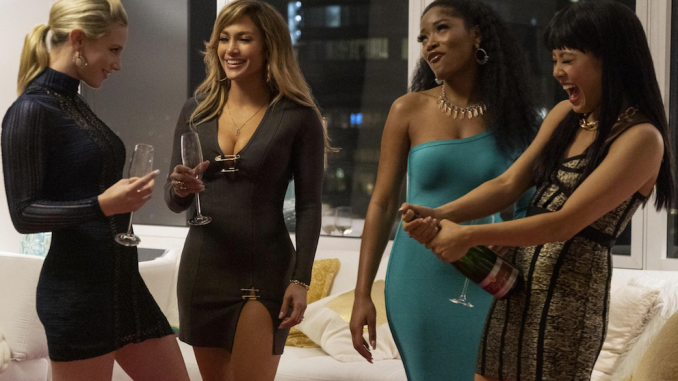
On Tuesday night, Editor-in-Chief Jake Mauriello and I went to see “Hustlers.” “Hustlers” is a film about a group of badass women who hustle in order to get by in a world stacked against them. They are mothers, caretakers, friends and incredibly strong-willed individuals. I thoroughly enjoyed this film for a multitude of reasons, particularly because it gave a nuanced and developed view of sex-work and stripping compared to limited representations that already exist. However, a quick google search can show you the plethora of problems that the movie has as well.
Firstly, the location in which Hustlers was shot needed to be closed for a full week during filming, meaning all the strippers who worked at the club where it was shot, were out of work for that time and not compensated by the film’s production team. Also, the portrayal of stripping and sex work all together could’ve been handled with much more grace and realism, because the abuse and stigma associated with this profession actively effects strippers in the real world, which the film doesn’t consider as much as it should.
In a society with acts like FOSTA (Allow States and Victims to Fight Online Sex Trafficking Act)/SESTA (Stop Enabling Sex Traffickers Act) that have violently hindered the lives of sex workers, it’s hard to accept this movie at face value, especially when it’s taking up the platform for real sex workers to fight against losing their safety.
FOFSA/SESTA was geared towards trying to stop sex trafficking, but instead negatively effected many sex workers who used the internet to protect themselves. According to an article titled ‘This Bill Is Killing Us’: 9 Sex Workers On Their Lives In The Wake Of FOSTA” by the Huffington Post, “for many consensual sex workers, losing these free or low-cost advertising platforms means losing the ability to work indoors and the ability to screen clients two major factors that contribute to a sex worker’s overall safety.”
With this in mind, watching “Hustlers” becomes more of a task. Strippers and sex workers are struggling to stay safe, and this movie overlooks their issues. Strippers do not have a voice truly standing up for them in Congress right now, but a poster or commercial for “Hustlers” is playing on TV and being widely received.
I digress, however, because I think the film also did a lot right in terms of deterring from the hypersexualization of women. In almost every film with women in lead roles, they are over-sexualized and one-dimensional. This film creates complex characters with lives, back stories and goals. They are the center of the narrative.
I think a huge part of the success in creating a women-centered narrative was by having women involved in various steps in the production process (wow, who would’ve guessed?). Many of the producers were women, as well as the editors and directors. By having so many women creating a movie like this, it avoids the male gaze. In a movie about women stripping and entertaining men, the film never comes across as intended for men.
I imagined the movie would struggle with the sexualization of women since it revolves around a very sexual job and atmosphere. The film does not stray away from showing nudity, which it shouldn’t, but even with naked female bodies on camera, the film doesn’t show or focus on them as purely sexual objects. These women are providing a service, one that does not strip them of their humanity just because they use their physical bodies to provide it. Moreover, the fact that the women in the narrative are written to be real people, rather than just bodies complimenting men, they keep their humanity.
It also beautifully demonstrates the bonds women create with one another. The relationship between Destiny and Ramona is intricate and special. They don’t spend time talking about men, but rather about business, their complicated lives and themselves. It is a breath of fresh air to see two non-white women at the heart of a film, spending time figuring out how to make a sh*t ton of money and be there for one another through thick and thin.
This film deserves its criticism, but not without praise as well. Movies like this show our society that we have a long way to go in terms of the representation of silenced or stigmatized groups, but it also shows us that we’ve come a long way. A film centered on strippers, women of color, friendship and complex characters without the male gaze is exactly what we need in theaters right now.
What we don’t need, though, are movies that lack accuracy when representing a disadvantaged group. Our country is actively hurting and putting sex workers in danger. “Hustlers” has been highly promoted, grossing $33.2 billion in its opening weekend, meanwhile real sex workers are struggling to be heard and losing their rights in legislature. Hopefully, with the wide success of this movie, conversations of decriminalization can begin by our presidential hopefuls and other representatives, instead of them tiptoeing around these very pressing issues.
I encourage everyone to go see this movie, with its pros and cons in mind, as well as making sure to vote in support of sex workers and strippers. The conversation cannot begin and end with one movie; it has only just begun.

